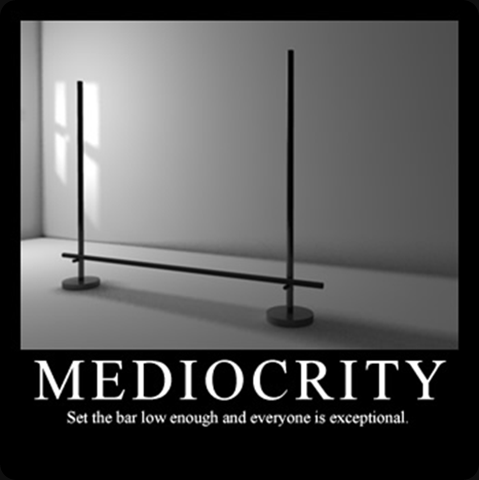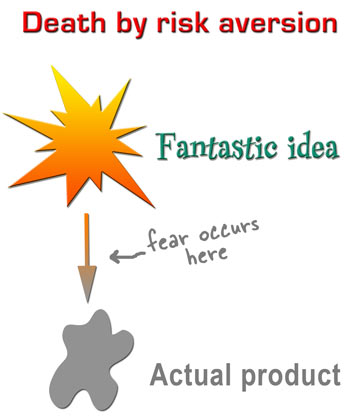Disclaimer: The Dilbert® Life series is a string of post on corporate culture from hell and dysfunctional organizations running wild. This can be quite shocking and sobering. A sense of humor will help when reading this. If you need to live in a sugar coated world were all is well and bliss and think all you do is close to godliness, stop reading right now and forget about the blog entries. It’s going to be dark. Pitch black at times actually, with a twist of humor, if you can laugh at yourself.
When people tell me they have strategy consultants, ITIL, SCRUM, KABAN, … coaches, architects and these are well embedded in their organization to ensure operational and long term success I always try to envision this. No matter how hard I try to see “marketing brochure” mental picture and the connotation of professionalism and success this is supposed to inspire, I never succeed.
In reality this is the mental picture I get: barnacles!
Barnacles, strategists, consultants and coaches at the office inspire me to get a chisel and high pressure cleaner to get rid of these. Barnacles slow us down, reduce efficiency and lead to structural damage.
Most organizations are failing due to their obsession with failing. That’s why ITIL is considered a success. All evidence to the contrary I must add. I have never found an IT professional who had seen any benefits to the success of IT come from ITIL.
ITIL is considered a success by people who are trying to manage IT but who do not understand IT. That’s business analysts, project managers, architect and way to often way too many IT managers. I’m not picking on ITIL per se. Take any methodology in the hands of scared, clueless people and they cling to them like a ship wrecked person to a life preserver. It’s a tool to be used where and when needed. Walking around in one at the office is pretty silly.
ITIL caters to their fears and their childish need to avoid failure. You might say that’s a result, but I think we can at least agree this is not a success or progress, which is the type of result your looking for a business. Still, why do so many waste so much time on processes of control that will not be sustainable in the reality of the field? It soothes fears, if feeds the need to be seen as in charge and having things under control. They think it makes them perceived as being in charge. Basically they’re acting. Like kids, pretending to be what they are not and will never be. It’s a sad day when I have to quote from Corinthians but desperate times call for desperate measures.
“When I was a child, I talked like a child, I thought like a child, I reasoned like a child. When I became a man, I put the ways of childhood behind me.”
Clearly too many people have missed some essential and significant steps or got stuck in them in professional life. Clever consultants and coaches cash in on delivering the instruments to anticipate problems, avoid problems, detect problems, manage change to avoid problems and last but not least provide framework to proactively deal with anything up to and including nuclear warfare. In my reality these people are more on par with racketeers, con men, liars and priest of false religions. As in real life they can make big money and gain a lot of influence and power, but only if you allow them to. However, does not make them right.
Failure is not an option. It is, for all practical purposes, guaranteed and free of charge. What you need is smart people, who understand the context, have a great situational awareness and possess the ability to think and act fast. This is not the same as wasting time and money in endless meetings, task forces and procedures. It’s always what you never considered that will get you in the end. Solve the problems you have fast, effective and decisively to the best of your abilities and in alignment with the environment. If you can do that, you have just made progress on route to success! The results are fast, measurable and simple enough as they are noticeable without a microscope.
There is way too much waste in governance leading to the exact opposite of what one is, supposedly, trying to achieve which is a better and more successful business. In fact, these activities in cost and head count outnumber people delivering tangible results by 3 to 1 and in some cases even more. They appoint blame and steal success as in reality the main purpose is to avoid being blamed themselves and to look good in order to get ahead.
Meanwhile your organization keeps failing as you keep adding overhead, head count and expenses. What you need to do is let your good and best employees excel at what they do best: achieve progress and move along. You need to steer that effort and ability towards the company goals and stimulate your employees.
Move fast, navigate through the unpredictable waters and learn how to deal with the fallout effectively. Whatever you do, don’t think that more governance is the way forward or is real work versus actual progress through results. Face it, you are probably not a nuclear power plant or highly regulated medical institution. You’re most likely a SME trying to thrive with limited budgets, resources and time. So not wasting any of it is paramount. Get rid of the crud, mend your sails and chop the barnacles of your ship’s hull. You can achieve more with men of steel on wooden ships than vice versa. The latter tend to stay and rust in safe harbors. In the end this does not mean you’re reckless!






![consultingdemotivator[1] consultingdemotivator[1]](https://blog.workinghardinit.work/wp-content/uploads/2014/02/consultingdemotivator1_thumb1.jpg)
![FSCN0508_thumb[1] FSCN0508_thumb[1]](https://blog.workinghardinit.work/wp-content/uploads/2014/05/fscn0508_thumb1_thumb.jpg)






